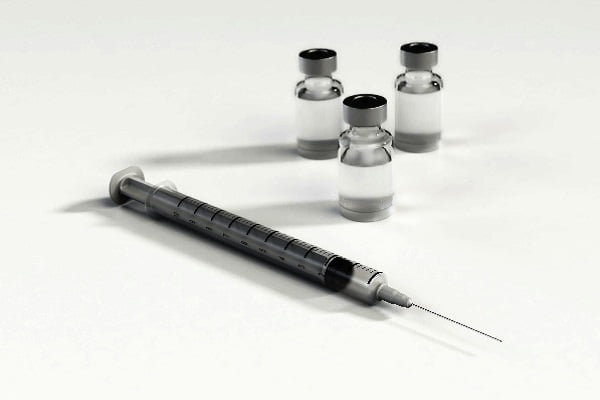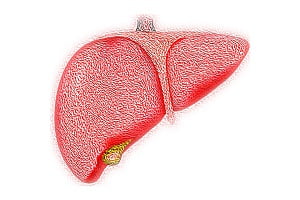Hepatitis Vaccines
- Updated on: Jun 26, 2024
- 6 min Read
- Published on Nov 25, 2019


Hepatitis
Hepatitis is an inflammation of virus caused by many factors especially viruses, called viral hepatitis. Five different types of viruses (A, B, C, D and E) are responsible for causing different types of hepatitis. Hepatitis can be acute or chronic and may result in liver cirrhosis, liver failure, or liver cancer. Hepatitis can be prevented with the help of hepatitis vaccines. Right now there are vaccines available for only HAV and HBV. There is no vaccine available for other three types of hepatitis (HCV, HDV, and HEV) as yet.
What is a Hepatitis Vaccine?
Hepatitis vaccine is a product that protects people against serious and potentially deadly hepatitis disease. Hepatitis vaccine is made up of products that produce immunity against hepatitis. Hepatitis vaccines are mostly available for HAV and HAB. Till now there is no vaccine available for preventing other types of hepatitis because of many reasons.
Hepatitis A vaccine
Hepatitis A is caused by a virus called HAV, which is spread mostly through the fecal-oral route when a person ingests food or water contaminated with HAV. Hepatitis A is mostly transmitted by having a close or direct contact with an infected person. People infected with HAV experience symptoms like nausea, poor appetite, abdominal pain, fatigue, jaundice (yellow eyes and skin), and dark urine.
Hepatitis A cannot cause chronic or constant infections of the liver. Mostly, people with HAV recover on their own. After recovery, they become immune to re-infection with hepatitis A for life. This happens because body produces effective antibodies against the hepatitis A virus and these antibodies provide life-long protection against the virus. Based on this ability of the body to make protective antibodies after infection with hepatitis A, researchers developed vaccines against this disease known as hepatitis vaccines.
Hepatitis A vaccine is made up of killed hepatitis A viruses which prompt the body’s immune system to produce antibodies against the hepatitis A virus. In most vaccine recipients, antibodies start to develop immediately after the first dose but are unable to reach protective levels for 2 to 4 weeks. Therefore, a second dose of the vaccine is recommended at least six months after the first dose to provide long lasting protection.
Two types of hepatitis A vaccines are currently available in the United States- “Havrix” and “Vaqta”. Both these vaccines are injected individually into the deltoid muscle of the arm and provide high level protection against hepatitis A. Besides these two vaccines, there is a combination vaccine called hepatitis-b-hepatitis-a-vaccine injection or “Twinrix” that is useful against both hepatitis A and hepatitis B. The dosage of Twinrix is different from the other hepatitis A vaccines and requires three doses over six months.
In the United States, hepatitis A vaccination has been recommended for all children at one year of age. Besides children, the hepatitis A vaccination is also recommended for individuals in high-risk settings, which include:
- People who travel to developing countries
- Men who prefer homosexual sex
- Illicit drug users
- People who require frequent blood products
- People having chronic liver diseases
There may be some mild side effects of the hepatitis A vaccine like soreness at the injection site, headache or fatigue. Rarely, serious allergic reactions occur.
Hepatitis B vaccine
Hepatitis B is a serious disease that affects the liver and is caused by the hepatitis B virus. Hepatitis B can be an acute infection with mild illness lasting a few weeks, or it can be chronic resulting in serious, lifelong illness. HBV can cause many symptoms like fever, fatigue, loss of appetite, nausea, vomiting, jaundice, pain in muscles, joints and stomach. Chronic HBV infections can cause lifelong illnesses like liver damage (cirrhosis), liver cancer, and even death
Hepatitis B is spread through blood, semen, or other body fluid of an infected person. The HBV usually gets transmitted by sharing items such as razors or toothbrushes with an infected person, contact with the blood or open sores of an infected person, sex with an infected partner, sharing needles, syringes, or other drug-injection equipment, exposure to blood from needle sticks or other sharp instruments etc.
HBV and its consequences can be prevented with Hepatitis B vaccine. Hepatitis B vaccine is made from the hepatitis B virus to prevent the HBV. The vaccine is usually given as 2, 3, or 4 doses over 1 to 6 months. Infants should get their first dose of hepatitis B vaccine at birth so that they will complete the series at 6 months of age. Besides infants, all children and adolescents younger than 19 years of age who have not been vaccinated yet should also be vaccinated.
Hepatitis B vaccine is mostly recommended for unvaccinated adults, who are at a high risk for HBV infection, including:
- People who have sex partners affected with hepatitis B
- Sexually active persons having multiple partners
- Persons undergoing treatment for a sexually transmitted disease
- Men having sexual contacts with other men
- People who share syringes, needles, or other drug-injection equipments
- Health care and public safety workers as they are at a higher risk for exposure to blood or body fluids
- Sexual abuse or sexual assault victims
- People with chronic liver disease
Hepatitis B vaccine should not be given to persons who ever had a life-threatening allergic reaction after a dose of hepatitis B vaccine, or people who have a severe allergy to this vaccine. People having any other illnesses should not be vaccinated till they recover.
There could be some mild side effects of hepatitis B vaccine like soreness at the site of injection, high temperature, dizziness, shoulder pain etc.
There are safe and effective vaccines for both hepatitis A and B but not for types C, D, or E. There is a combination vaccine available that protects against both hepatitis A and B.
Who Should Get the Hepatitis B Vaccine?
CDC recommends that all babies should get their first dose of hepatitis B vaccine as newborns. Some other people who should be vaccinated include:
- Unvaccinated people especially younger than age 19
- Anyone whose sex partner has hepatitis B
- People undergoing treatment for STDs
- People with kidney failure
- People who travel to regions with moderate to high rates of hepatitis B
- People with HIV infections
- People undergoing dialysis
Hepatitis B vaccination is also recommended for adults who are at risk for hepatitis B. The vaccine is given in 3 doses. The second dose is given 1 month after the first dose and then third dose is given 6 months after the second dose. If a person misses any of the doses of Hepatitis B vaccine, he is not supposed to restart the entire series of the vaccine. The missed doses of vaccines can be taken by the patient as per his or her wish.
The hepatitis B vaccine is also called the first “anti-cancer” vaccine because it prevents hepatitis B, which is the leading cause of liver cancer worldwide.
Combination Vaccine for Hepatitis A and B
Both hepatitis B and hepatitis A viruses attack the liver. A combination hepatitis A and B vaccine can therefore be used against them. The combination vaccine provides immunity for at least 10 years and almost for a lifetime if the full series of vaccination is completed. Twinrix is a combination vaccine that provides active immunity against both the hepatitis A and hepatitis B viruses. It is given in a series of 3 doses as per the same schedule as for the hepatitis B vaccine.
This combination vaccine has been found to prevent both hepatitis A virus (HAV) and hepatitis B virus (HBV) infection with only one series of injections. People usually get the vaccines together rather than separately. It is usually given to people who are at a high risk of both HAV and HBV.
Side Effects of Combination Vaccine
Some of the side effects of combination vaccine, although temporary, are:
- Breathing problems
- Swelling of face, lips, tongue and throat
- Hives
Common side effects of the Twinrix vaccine are:
- Headache
- Fatigue
- Soreness at the injection site
Why isn’t there a hepatitis C vaccine?
The hepatitis C virus is more variable than hepatitis A and hepatitis B viruses. In the beginning, the hepatitis C virus occurs in at least six genetically different forms with multiple subtypes. Among these multiple subtypes, only 50 subtypes have been identified. Variants of hepatitis C virus genotypes have been found to cause most infections in different parts of the world. Only a global vaccine can help to protect against all these variants of the virus.
The hepatitis C virus has even genotypes, which differ from each other by as much as 70 percent. The virus also mutates easily, and therefore makes it difficult for the immune system to keep up. In addition to these challenges, researchers are still unable in finding a suitable animal model on which they can test the effectiveness of the HCV vaccine. All these challenges are the reasons behind not having a HCV vaccine yet.
Vaccines usually take time and considerable testing before they are made publicly available. They should also prove effective for a majority of people before a company markets them. Currently, two clinical trials of hepatitis C vaccines are in progress and each of them is using a different approach in preventing hepatitis C transmission. The end dates and results of these trials are still unknown, but their continuance shows promise in hepatitis C vaccine research.












